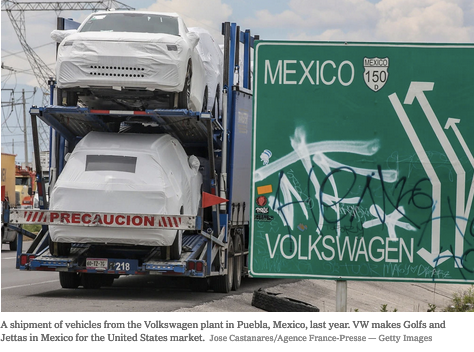When trade tensions with China flared last year, many companies sought refuge in a country with a long, stable relationship with the United States: Mexico.
Now, that alternative for production and materials may also be in jeopardy with President Trump’s threat to impose escalating tariffs on imports from Mexico, aimed at forcing action on illegal immigration.
In the short term, the tariffs would mean lower profits for American importers and higher prices for American consumers on everything from avocados to Volkswagens. In the long run, they could force companies to reconsider the continent-spanning supply chains that have made North America one of the world’s most interconnected economies. That disruption, experts warn, could be far more damaging to the United States economy than the cost of tariffs themselves.
The United States imported more than $345 billion in goods from Mexico last year, and shipped $265 billion the other way. But if anything, those numbers understate the interdependence. American refiners process crude oil from Mexico, then sell it back as gasoline. Automakers ship parts back and forth repeatedly during manufacturing. About 30 percent of the content of Mexican exports originated in the United States, according to a recent study.




